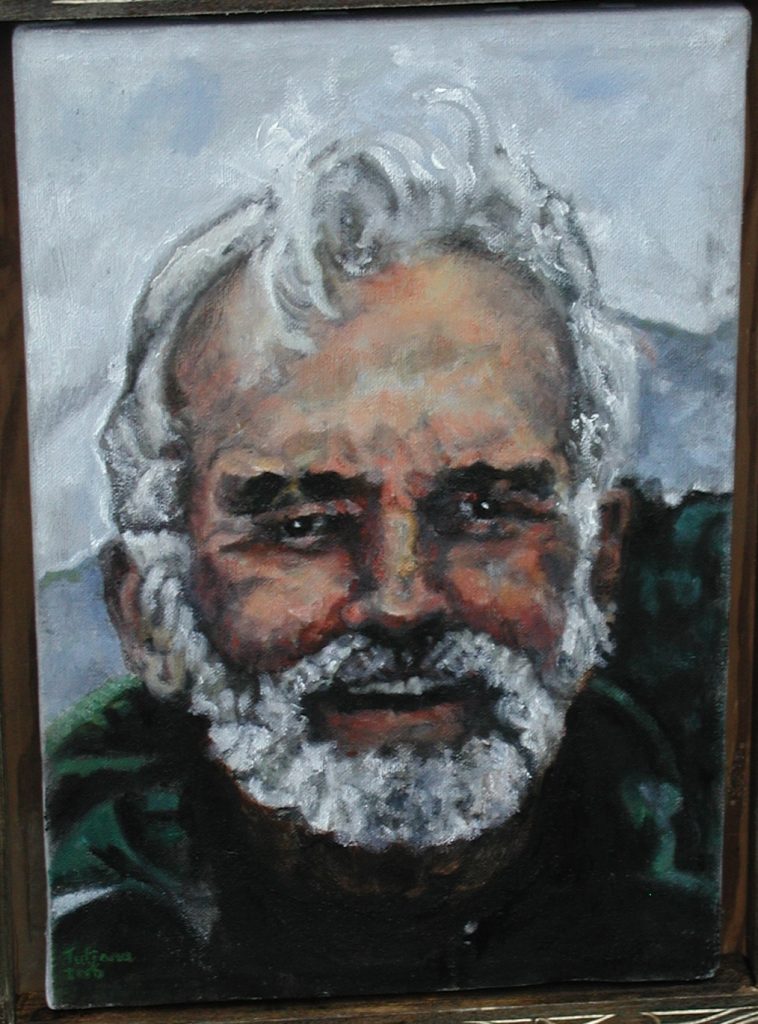How do you fit your mold?
Grandfather says life can be thought of as a mold, different for each of us, but constraining, whether we like it or not.
The key to happiness, in his opinion, is to live in the right mold.
Grandfather’s mold is individual activity. Collective effort is limited to family matters and occasional temporary troubleshooting for an organization.
Of course, his individual activity is chronicled throughout the Grandfather Says series of articles.
Grandfather says he can give you an example of a collective effort: The local health clinic was part of a collection of clinics, run by a doctor who redistributed the income from our financially successful clinic to others less so, which I (and others) thought was not fair. So, Grandfather joined their board and it sued for its independence (working toward independence and liberty always was Grandfathers mold).
Our clinic won and its board was reconstituted as free-standing; Grandfather stayed on it until some infrastructure improvements were finished (again, construction fits his mold) — then he walked.
Others, whose mold is day-to-day cooperative effort, stayed on.
***
About the Author: RD Blakeslee is an octogenarian in West Virginia who built his net worth by only investing in that which can be enjoyed during acquisition and throughout life, as opposed to papers in a drawer, like stocks and bonds. You can read more about him here.
Photos: Courtesy of the Blakeslee Family


Here’s another example:
https://lenpenzo.com/blog/id55399-grandfather-says-the-carnegie-hall-in-lewisburg.html
Wow, Dave, you really are sounding more and more like … me! I’ve never described it in the terms you use, but my best efforts outside family entailed fixing great big messes and then turning it over to others to keep it going.
Last example was a small manufacturing firm that had a computer system installed, but the inventory wasn’t accurate so it wasn’t used except for customer orders. I found the root of the problems, established procedures company-wide, and enforced them … some with squirtguns! (The customer tech. guys thought they didn’t need to follow procedures, and would routinely take things out of inventory with no paper trail. A couple squirts in the face when they tried to sneak by my office put a stop to that.)
I was happy and engaged while I was solving problems. Once things started humming along without my interference? I got bored. Let me solve a problem – or find a new job.
Gee, it seems to me that there are fewer and fewer opportunities to trouble shoot and help to fix local institutions, these days. Maybe it’s just because I’m now old and increasingly self-isolated, but I tend to think it’s also because of the decline in our local institutions, both in numbers and in quality.
Fortunately, I lived in what I think was our culture’s heyday: the third quarter of the twentieth century, before that happened.
The two institutions which are the subject of this article are now a case in point: Carnegie Hall now employs a dozen or so administrators for its programs (most of which have nothing to do with its function as a concert hall) and a multi-million dollar budget, much of it coming from government funding, with “appropriate” strings attached.
The Monroe Health Center is now an official U.S.Government “under served area ” Health Center, with a million dollar a year stipend from the government. It has all the “appropriate” fetters on its autonomy which you would expect.
Meanwhile, we have no more doctors in private practice that I know of in Monroe county – there were at least a half-dozen, forty years ago.
Ack, don’t get me going, Dave. There is no such thing as a “charity” anymore, even though many places claim the title. It makes them feel philanthropic.
But the only function they actually have is to write proposals to obtain government funding – which old goats like us know is really our money, taken through taxes. What’s charitable about that?
I’s hard not to be cynical about most of contemporary society, isn’t it, Gee?